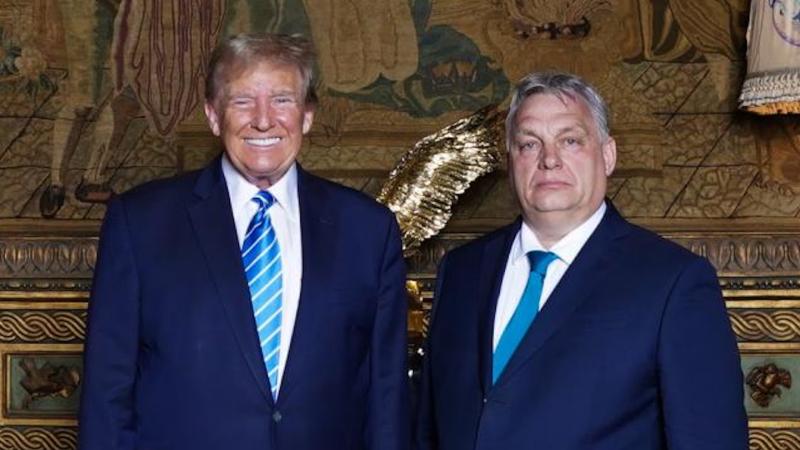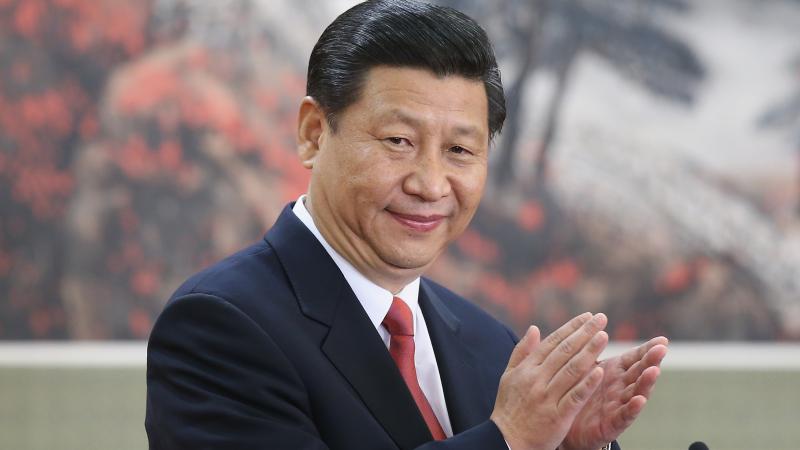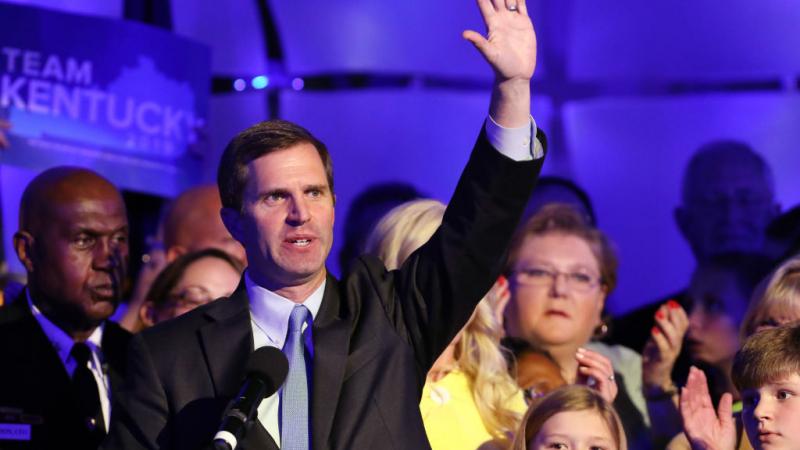Vance sends shockwaves through Europe with warning about censorship, political intolerance
The vice president told European leaders that a “retreat” from the “fundamental values” shared with the United States is the biggest threat to the transatlantic alliance.
Vice President J.D. Vance’s first foreign assignment roiled Europe with a stark warning that the continent’s drift toward censorship and political intolerance posed the greatest risk to its security alliance with America.
While the warning was met with shock and derision from some officials in attendance, the vice president noted several recent moves by European governments and officials that he says bare a striking resemblance to the behavior of the Soviet Union and other communist countries that western Europe and the United States once united against during the Cold War.
“But while the Trump administration is very concerned with European security and believes that we can come to a reasonable settlement between Russia and Ukraine, and we also believe that it's important in the coming years for Europe to step up in a big way to provide for its own defense, the threat that I worry the most about vis a vis Europe is not Russia, it's not China, it's not any other external actor,” Vance said in the speech, delivered Friday to the annual Munich Security Conference in Germany on Friday.
“And what I worry about is the threat from within—the retreat of Europe from some of its most fundamental values, values shared with the United States of America,” Vance said.
Vance expressed concern about one of the most recent examples, a Romanian court decision to annul presidential election results in the country after a anti-establishment politician skeptical of the Ukraine war, Calin Georgescu, unexpectedly won the most votes in the first round of the election.
Romanian court reverses election results
The Romanian constitutional court in a ruling last December threw out the results and called for a new election after intelligence documents were declassified by President Klaus Iohannis that purported to show a Russian influence operation to boost the candidate. The new election is slated to take place on May 4.
Georgescu lost an appeal to the Romanian appeals court to reinstate the results and as a last ditch effort filed a petition to the European Court of Human Rights. However, the European Union court declined to provide interim relief, deciding Georgescu’s petition did not meet the requirements under its governing rules.
“Justice has been brought to its knees again,” and “Through what happened today, the people [have been] condemned to accept corruption and injustice as a state of affairs,” Georgescu said after the appeals court decision.
Even Georgescu’s would-be runoff election opponent, the conservative pro-European Union candidate Elena Lasconi ripped the court’s decision, saying it had “trampled” on the country’s democracy.
“Now, as I understand it, the argument was that Russian disinformation had infected the Romanian elections, but I'd ask my European friends to have some perspective,” Vance said.
“You can believe it's wrong for Russia to buy social media advertisements to influence your elections. We certainly do. You can condemn it on the world stage even. But if your democracy can be destroyed with a few $100,000 of digital advertising from a foreign country, then it wasn't very strong to begin with,” he continued.
“Now the good news is that I happen to think your democracies are substantially less brittle than many people apparently fear, and I really do believe that allowing our citizens to speak their mind will make them stronger still,” he said.
But Vance also pointed out the real and growing problem of European elites and officials working to censor the viewpoints of their own citizens, or even suggesting outright bans on political parties that threaten the establishment.
Free speech restrictions in U.K. and Sweden
The vice president highlighted a British law that landed Adam Smith-Connor, a physiotherapist and army veteran, in court for standing in an exclusion zone outside an abortion clinic where he told law enforcement he was silently praying for his unborn son that had died in an abortion 22 years prior.
“The British government charged [him]…with the heinous crime of standing 50 meters from an abortion clinic and silently praying for 3 minutes,” Vance said. “Not obstructing anyone, not interacting with anyone, just silently praying on his own.”
An exclusion zone law was introduced by English lawmakers in October 2022, banned certain activities within a 150 meter zone around an abortion clinic, such as protests and vigils, that could influence any person’s decision to access or provide an abortion, obstruct the clinic, or harass anyone. The act came into effect after Smith-Connor was charged, extending the local safe zone regulations at a handful of clinics, including the Bournemouth clinic where he was, to the whole country. The statutory law of England also applies in Wales.
Vance also called attention to a recent cases in Sweden, where protestors who burned the Muslim holy book known as the Quran faced government prosecution. In one case, Swedish authorities sought to expel from the country an Iraqi immigrant named Salwan Momika who burned the Quran during a protest. He was later killed in a shooting in his apartment just before a verdict on the charges—"agitation against an ethnic group”—was set to be handed down. In many Islamic countries, the action of burning or trampling on the Koran entails the death penalty or life in prison.
Iraqi Man Burns The Koran and Is Shot Dead in Sweden | ZENIT - English
Effort to ban German populist party
In Germany, lawmakers also debated targeting an upstart anti-establishment party with a nationwide ban after its poll numbers significantly improved in recent months. So far, the effort to ban the party remains unsuccessful and a parliamentary election is set to take place later this month.
The party, Alternative for Germany, or AfD, has drawn accusations from mainstream German politicians that it is a far right party that poses similar risks to the rise of Adolf Hitler’s Nazi Party in Germany because it gained traction by advocating for preserving German cultural identity in the face of mass migration.
The most recent calls for a ban, which is allowed under the post-war German constitution under extreme circumstances, came after the mainstream conservative party, the Christian Democrats, joined with AfD to pass a parliamentary motion calling for tough immigration reforms.
"You are enemies of the Constitution," Christian Democrat Marco Wanderwitz said, who initiated the motion to ban the anti-establishment party, contradicting his own party’s position. "You are enemies of our democracy, you are enemies of humanity."
However, the party shares many core campaign issues in common with other conservative European parties and the Republican Party in the United States, including calling for mass deportations, calling for cuts in the welfare state, and a proposal to strengthen the atrophied German military. The party is also skeptical of the European Union and calls for more friendly relations with Russia, which has drawn the ire of EU and German politicians.
So far, German courts have only successfully banned two political parties after World War II, the Socialist Reich Party and the Communist Party of Germany. The courts found that both of these parties violated the German constitution’s prohibition of parties that seek to undermine the “free democratic basic order,” according to Politico.
Additionally, the European Union has pressured American social media companies to expand policing "hate speech" on their platforms. Elon Musk’s X, along with Google's YouTube, ByteDance's TikTok and Meta's Facebook and Instagram, signed a "countering illegal hate speech online" and EU code of conduct. The pledge requires the platforms to review "at least two-thirds of hate speech notices” from a network of nonprofit and public "monitoring reporters" within 24 hours of receipt, Just the News reported earlier this month.
Vance urges Europe not to adopt tactics of Cold War communists
Vance warned that if these actions continue, Europe risks losing the values that cement the transatlantic alliance together and that the European establishment threatens to become the very thing it stood against during the Cold War.
“For years we've been told that everything we fund and support is in the name of our shared democratic values. Everything from our Ukraine policy to digital censorship is billed as a defense of democracy. But when we see European courts canceling elections and senior officials threatening to cancel others, we ought to ask whether we're holding ourselves to an appropriately high standard, and I say ourselves because I fundamentally believe that we are on the same team,” Vance said.
“We must do more than talk about democratic values, we must live them. Now within living memory of many of you in this room, the Cold War positioned defenders of democracy against much more tyrannical forces on this continent. And consider the side in that fight that censored dissidents, that closed churches, that canceled elections,” he said. “Were they the good guys? Certainly not.”
The Facts Inside Our Reporter's Notebook
Links
- met with shock
- said in the speech
- declined to provide interim relief
- introduced by British lawmakers
- certain activities within a 150 meter zone
- extending the local safe zone regulations
- later killed in a shooting
- drawn accusations from mainstream German politicians
- joined with AfD to pass a parliamentary motion
- Christian Democrat Marco Wanderwitz said
- shares many core campaign issues in common
- only successfully banned two political parties
- pressured American social media companies















